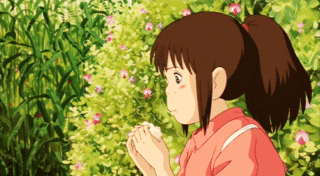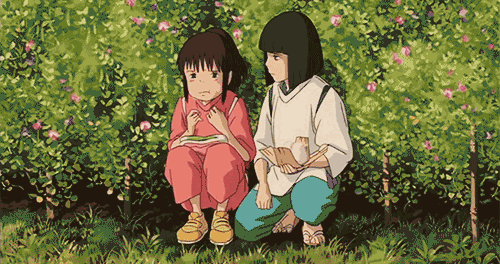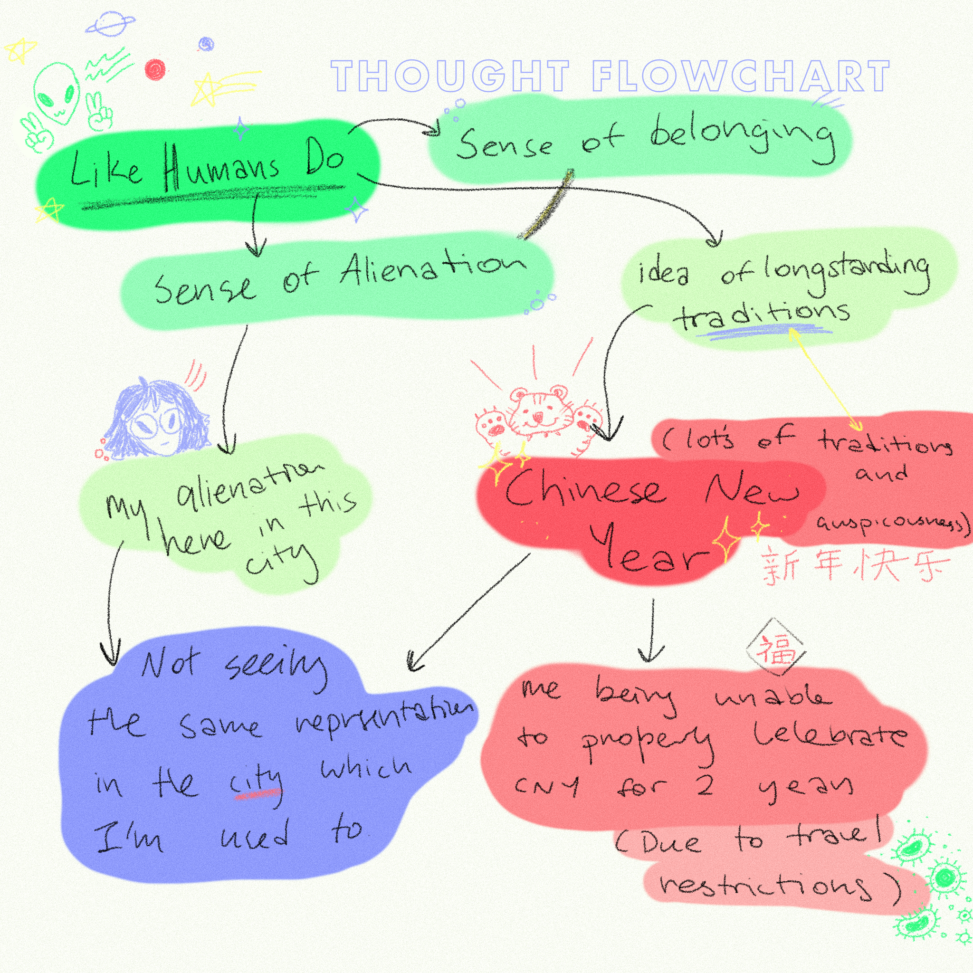I understand there was a bit of a jump between David Byrn’s Like Humans do and Chinese New Year. Hopefully, this blog post will help illustrate how I made the connection.
I think this line of thought does stem from me growing up in an environment where I was in the majority then suddenly shifting to the complete opposite. I had already psyched myself up, knowing that I will be part of the minority, but that did not fully prepare me for what I was going to experience. Coupled with my general dysphoria of being half Asian and half White, my first year of university was a complicated one for me to process. There was already a weird sense of un-belonging and yearning for my support systems. I think it hit the most during the 2020 Chinese New Year, alongside the SAD (Coming from a country with a year-long summer), not being able to see my family members and eating traditional food, it all sort of accumulated to this huge mass of alienation. This is probably why my brain so easily connected the idea of being an alien to the Chinese New Year.
Connecting it back to the City and a blurb about COVID 19
Personally, Chinese New Year is very easy to connect to the city, and specifically the concept of home. However, if you don’t practice it, it may be harder to understand. Chinese New Year, is considered to be one of the greatest annual migrations of Southeast and Eastern Asians. Millions of people travel back to where they originate from to celebrate with their families. So this topic is heavily intertwined with the concept of a “hometown” and a sense of belonging. Therefore, with the disruptive force which Covid-19 had all over the globe, this too was heavily halted. I personally really associate COVID 19 with Chinese New Year because I remember finding out about it on January 26th of 2020 (My birthday and the second day of Chinese New Year). Family members began to share many posts making fun of the correlation between the animal of that year (a rat) and the impending pandemic (which is usually associated with rats due to the plague). I remember distinctly that Singapore had enforced quarantine for all incoming passengers from WuHuan to stay at home for 2 weeks. As a result, many classmates had to quarantine months before the countrywide quarantine because they and their parents or caretakers had travelled to China for Chinese New Year. I think it’s very apparent that this holiday has a deep-rooted connection to travel and the city.
Emotional Feelings
I think one of the best visual representations of how I feel about the subject is through one specific scene from Spirited Away. Chihiro, the main protagonist, is stuck in this alternate world, where her parents have been turned into pigs. She must work in an enchanted bathhouse in order to free her parents. In this particular scene, she has discovered where her parents were being kept. Her friend, Haku, has led her to her parents and comforts her with food. In a fit of exhaustion and sadness, Chihiro begins to cry as she eats the delicious food. It is not unlike me to cry whilst eating nostalgic food, especially if I haven’t had it in a year. I honestly had a very similar experience (minus the pig part) eating steamed rice and dumplings at a Chinese restaurant. I think this scene specifically really invokes the stress and alienation that the character has been experiencing, and the cry acts as her catharsis moment when all her emotions have built and swelled up.





Leave a Reply